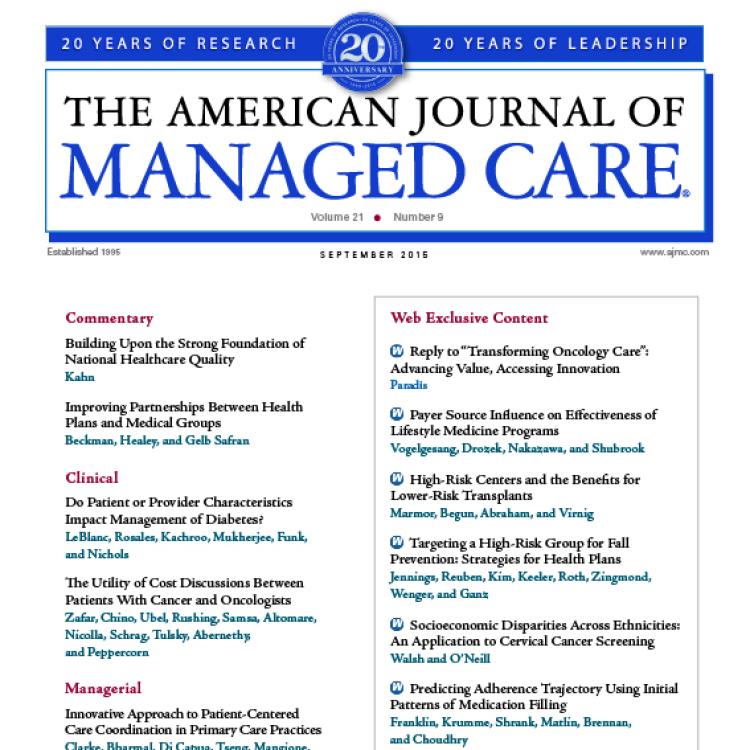Authors: Garrison, LP; Carlson, JJ; Bajaj, PS; Towse, A; Neumann, PJ; Sullivan, SD; Westrich, K; Dubois, RW.
Publication: The American Journal of Managed Care, September 2015.
Background
Risk-sharing agreements (RSAs) between health care payers and pharmaceutical manufacturers link coverage and reimbursement levels to drug performance and/or utilization. There are potential benefits to these agreements, including reducing payers’ risk of a sub-optimal purchase; earlier access to pharmaceuticals for patients and consumers; and more efficient pricing mechanisms. Also, these agreements can be a catalyst for generating an enhanced level of real-world medical evidence.
An academic, peer-reviewed study, conducted jointly by experts from the National Pharmaceutical Council, the University of Washington, Tufts University and the Office of Health Economics (UK) and published in The American Journal of Managed Care, examined the use of RSAs in the United States. The study—which involved a review of an RSA database, interviews with key stakeholders and an online survey—found that there is limited RSA activity in the United States, but interest in the agreements among both payers and manufacturers is strong and a changing health care environment may generate more activity in this arena in the future.
Key Findings
There are compelling arguments for both manufacturers and payers to consider RSAs:
- Manufacturers said they can use RSAs to differentiate and demonstrate the effectiveness of their product versus their competitors, which can assist payers in making formulary decisions.
- Payers can utilize RSAs to gain experience with a product, reducing uncertainty regarding clinical value, performance and financial impact.
There are many difficulties inherent in implementing RSAs, particularly outcomes-based agreements:
- Significant payer and provider infrastructure is necessary to monitor an outcomes-based agreement. For example, payers may not have the capability to monitor and track the pharmaceutical usage of individual patients.
- Manufacturers are reluctant to accept financial consequences when they can’t control how a drug is prescribed or used.
- Agreeing upon outcomes that are meaningful and measurable within a reasonable timeframe is challenging.
Potential for the Future
The study found that there is a belief among stakeholders that more RSA activity could be seen in the future. This expansion could be fueled by (1) improved data systems, which can help create the mechanisms to monitor patient usage of pharmaceuticals and their effect on health outcomes; and (2) the changing of incentives within the health care system toward value-based orientations. The increased use of accountable care organizations, for example, may lead to enhanced health system alignment with risk-sharing agreements.
